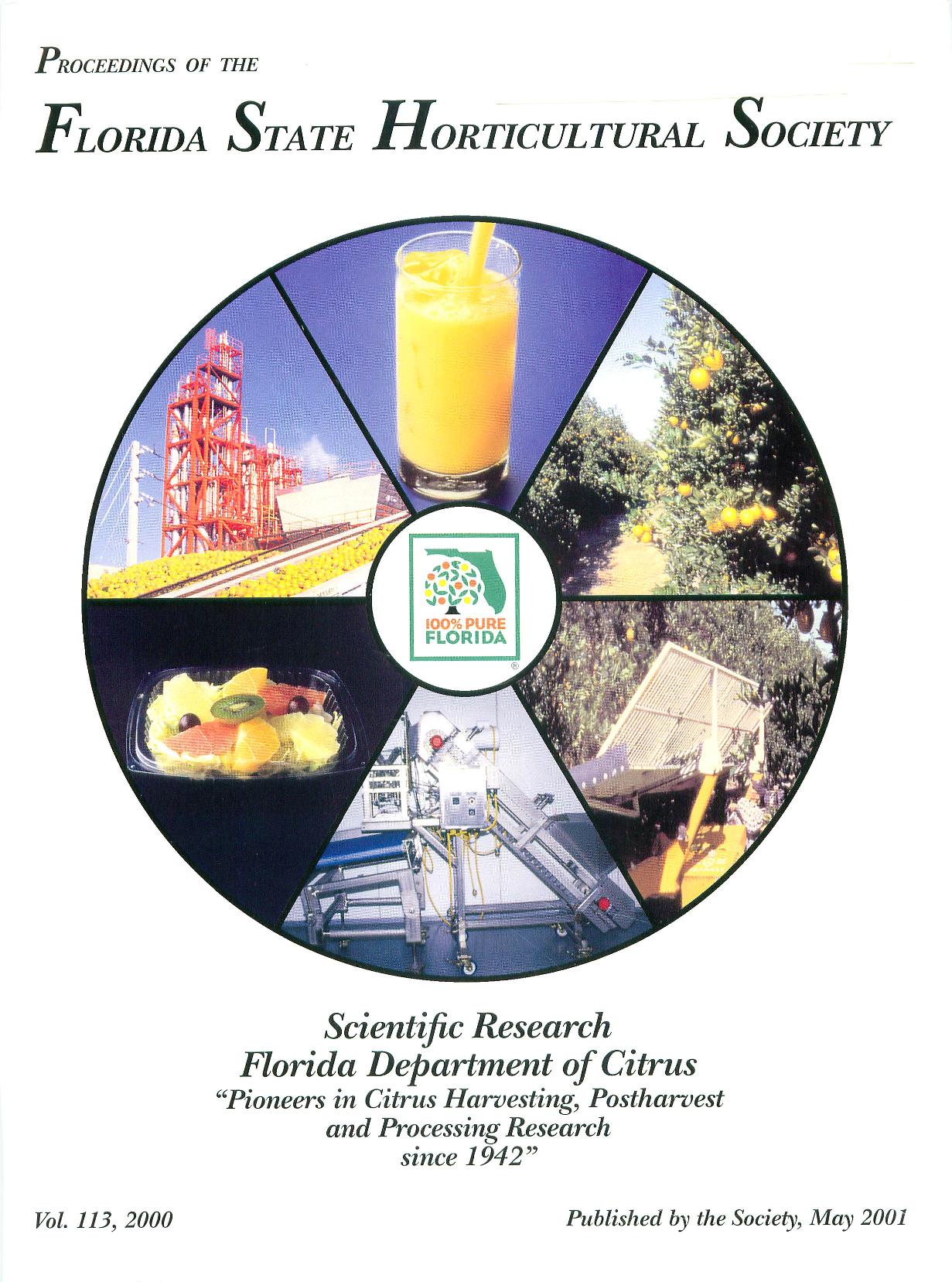Vegetable
Abstract
Six of the most promising tomato yellow leaf curl virus (TYLCV) resistant hybrids currently available were evaluated in trials conducted in the fall, winter and spring of 1999-2000. In the Palmetto/Ruskin production area, two observational trials were planted on commercial farms in Ruskin and Bradenton, and one trial was conducted for harvest at the Gulf Coast Research and Education Center in Bradenton. In Palm Beach County, one trial was conducted for harvest on a commercial farm in Boynton Beach. An additional trial was conducted at the Southwest Florida Research and Education Center in Immokalee. At all locations, six TYLCV-resistant varieties were compared to at least 2 standard varieties. Virus pressure was light at the 4 sites in Manatee and Palm Beach counties. Silverleaf whitefly numbers and virus pressure were very high in Immokalee. All plants of the standard cultivars, which showed symptoms of TYLCV-ls, exhibited 100% infection by 8 weeks after transplanting, whereas resistant varietieswere only 0 to 3% symptomatic, with the exception of HA3044
which reached 54% during the same period. Total marketable yield ranged from 1881 to 2899 25-lb cartons per acre in Manatee, from 1577 to 2300 cartons per acre in Palm Beach county, and from 343 to 2658 cartons per acre in Immokalee. All top yielding varieties had acceptable horticultural characteristics. Fruit quality parameters, such as catfacing, scars and zippers, also were evaluated.

